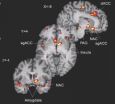(Press-News.org) Blending religion with familism — a strong commitment to lifelong marriage and childbearing — dampens secular civic participation, according to research by a Baylor University sociologist.
"Strong family and strong religion. What happens when they meet? Is that good for the larger society? It is not always as it seems," said Young-Il Kim, Ph.D., Postdoctoral Fellow in Baylor's Institute for Studies of Religion.
His study — "Bonding alone: Familism, religion and secular civic participation" — is published online in Social Science Research. The findings are based on analysis of data from the first wave of the National Survey of Families and Households, a survey of more than 10,000 individuals age 19 and older designed by the Center for Demography and Ecology at the University of Wisconsin-Madison.
The findings are significant because no studies have shown that traditional family ideology discourages people from involvement with the secular world – or whether the relationship varies by levels of religious commitment, Kim said.
Previous studies have shown that religion reinforces ties within a family, and that religious involvement promotes civic engagement. But Kim said he wanted to examine the interaction of familism and religion, including such activities as church attendance, on secular civic activities. He found that as religious participation increases, the negative influence of familism on civic participation tends to become larger.
The reason is uncertain for why the merging of traditional family ideology and religion insulates a family within its own members and religious social groups, according to the study, co-authored by W. Bradford Wilcox, Ph.D., director of the National Marriage Project at the University of Virginia.
Possible causes might be that the modern secular world causes feelings of insecurity for people who hold traditional family values — so that there is a desire to protect one's family from secular influences —or that familistic Americans who are devoted to their religion and places of worship "probably have little time and energy to devote to secular organizations," Kim said.
Researchers examined whether respondents reported at least one membership in such secular voluntary organizations as political groups, labor unions, sports or cultural groups, hobby clubs and professional societies.
The study noted that the boundary between "religious" and "civic" spheres in the United States often is blurred.
"Several secular organizations have religious origins, or certain civic activities that appear to be secular may be sponsored by religious organizations," with the Catholic Knights of Columbus an example, according to the study.
The study's implication is that while putting value on families is a good thing, too much involvement with "birds of a feather" — those within the family and religious community — may hinder people from benefitting society at large, Kim said.
He reassured that familistic people are still joiners. "I do not say that they are asocial. What I want to say is that their social life is somewhat limited to religious groups, and this may hinder social integration in broader society.
"That's why some sociologists of religion dream of multi-ethnic congregations — to be a more inclusive and more vibrant society," he said.
### END
Family commitment blended with strong religion dampens civic participation, Baylor researcher finds
2012-11-15
ELSE PRESS RELEASES FROM THIS DATE:
New study finds milk-drinking kids reap physical benefits later in life
2012-11-15
Starting a milk drinking habit as a child can lead to lifelong benefits, even improving physical ability and balance in older age, according to new research. A new study published in Age & Aging found an increase of about one glass of milk a day as a child was linked to a 5% faster walking time and 25% lesser chance of poor balance in older age. The researchers suggest a "public health benefit of childhood milk intake on physical function in old age" – a finding that has huge potential for adults over 65, a population expected reach more than 70 million by the year 2030, ...
How 'black swans' and 'perfect storms' become lame excuses for bad risk management
2012-11-15
The terms "black swan" and "perfect storm" have become part of public vocabulary for describing disasters ranging from the 2008 meltdown in the financial sector to the terrorist attacks of September 11. But according to Elisabeth Paté-Cornell, a Stanford professor of management science and engineering, people in government and industry are using these terms too liberally in the aftermath of a disaster as an excuse for poor planning.
Her research, published in the November issue of the journal Risk Analysis, suggests that other fields could borrow risk analysis strategies ...
A new way of looking at Prader-Willi Syndrome
2012-11-15
An Australian study reveals that people with the rare genetic disorder known as Prader-Willi Syndrome may have an impaired autonomic nervous system. This discovery opens up a new way of looking at the insatiable appetite experienced by all sufferers, as well as their very high risk of cardiovascular disease.
The autonomic nervous system controls our inner organs, including our gut, heart, liver and blood vessels. It is a finely tuned, dynamic system, responding moment-by-moment to the body's needs.
Researchers from Sydney's Garvan Institute of Medical Research, including ...
Scientists show protein-making machinery can switch gears with a small structural change process, which may have implications for immunity and cancer therapy, compared to the movie The Transformers
2012-11-15
JUPITER, FL, November 15, 2012 – For the past several years, Min Guo, an assistant professor at The Scripps Research Institute, has focused on the intricate actions of an ancient family of catalytic enzymes that play a key role in translation, the process of producing proteins.
These complex enzymes are a group of fundamental molecules that make building blocks for protein production. Present in every cell, these enzymes—known as aminoacyl-transfer RNA synthetases (tRNA synthetases)—select the proper amino acid and assign them to transfer RNAs to make a protein in the ...
Genetics point to serious pregnancy complication
2012-11-15
New research at the University of Adelaide has revealed a genetic link in pregnant mums - and their male partners - to pre-eclampsia, a life-threatening complication during pregnancy.
Pre-eclampsia involves high blood pressure and fluid retention and can cause damage to the kidneys and liver. About 7% of pregnancies are affected by pre-eclampsia.
In a paper now online in the journal Placenta ahead of print publication, the researchers say they have found a genetic variant involving the AGT2R gene, which may predispose women to pre-eclampsia.
However, the genetic variant ...
VTT developes future energy solutions in cooperation with residents
2012-11-15
VTT is developing future energy solutions in cooperation with residents of the new research hotel in Otaniemi. The hotel offers rented furnished accommodation to visiting foreign research scientists, who will move in to the new building in November. The four-storey research hotel is located at Otaranta 4 and overlooks the sea. The hotel has 52 rooms ranging from 30 to 80 square metres, with common areas and facilities on each floor.
Residents' energy behaviour matters – up to a fourfold difference in consumption
Research Professor Miimu Airaksinen says that the role ...
Mercury poisoning ruled out as cause of Tycho Brahe's death
2012-11-15
In 2010, Tycho Brahe was exhumed from his grave in Prague, an event which received extensive international media coverage. Since then, a Danish-Czech team of researchers has been working to elucidate the cause of Tycho Brahe's death. The results of this intensive work now make it possible to rule out mercury poisoning as a cause of death.
For over four hundred years, Tycho Brahe's untimely death has been a mystery. He died on 24 October 1601 only eleven days after the onset of a sudden illness. Over the centuries, a variety of myths and theories about his death have arisen. ...
Study finds asthma is not linked to lower educational attainment
2012-11-15
Research led by Queen Mary, University of London has found that having asthma is not linked to poorer scores in national school examinations. In contrast, ethnicity and social deprivation were associated with poorer educational outcomes in the study, published in the journal PLOS ONE.
Long-term conditions in childhood – of which asthma is now the most common – may have a major impact on educational performance. However, in one of the world's first studies to link health, housing, benefits and educational data in over 12,000 children, researchers from Queen Mary, University ...
Structure of enzyme unravelled providing basis for more accurate design of chemotherapeutic drugs
2012-11-15
Cambridge, MA, November 15, 2012 – A group of researchers at the University of California, Berkeley have for the first time described the structure of the active site core of topoisomerase II alpha, an important target for anti-cancer drugs.
The type II topoisomerases are important enzymes that are involved in maintaining the structure of DNA and chromosome segregation during both replication and transcription of DNA. One of these enzymes, topoisomerase II alpha, is involved in the replication of DNA and cell proliferation, and is highly expressed in rapidly dividing ...
When the going gets tough, the tough get... more relief from a placebo?
2012-11-15
ANN ARBOR, Mich. — Are you good at coping when life gets tough? Do people call you a straight-shooter? Will you help others without expecting anything in return?
Those personality traits might do more than help you win a popularity contest. According to new University of Michigan-led neuroscience research, those qualities also might make you more likely to get pain relief from a placebo – a fake medicine.
And, the researchers show, it's not just your mind telling you the sham drug is working or not. Your brain's own natural painkiller chemicals may actually respond ...


